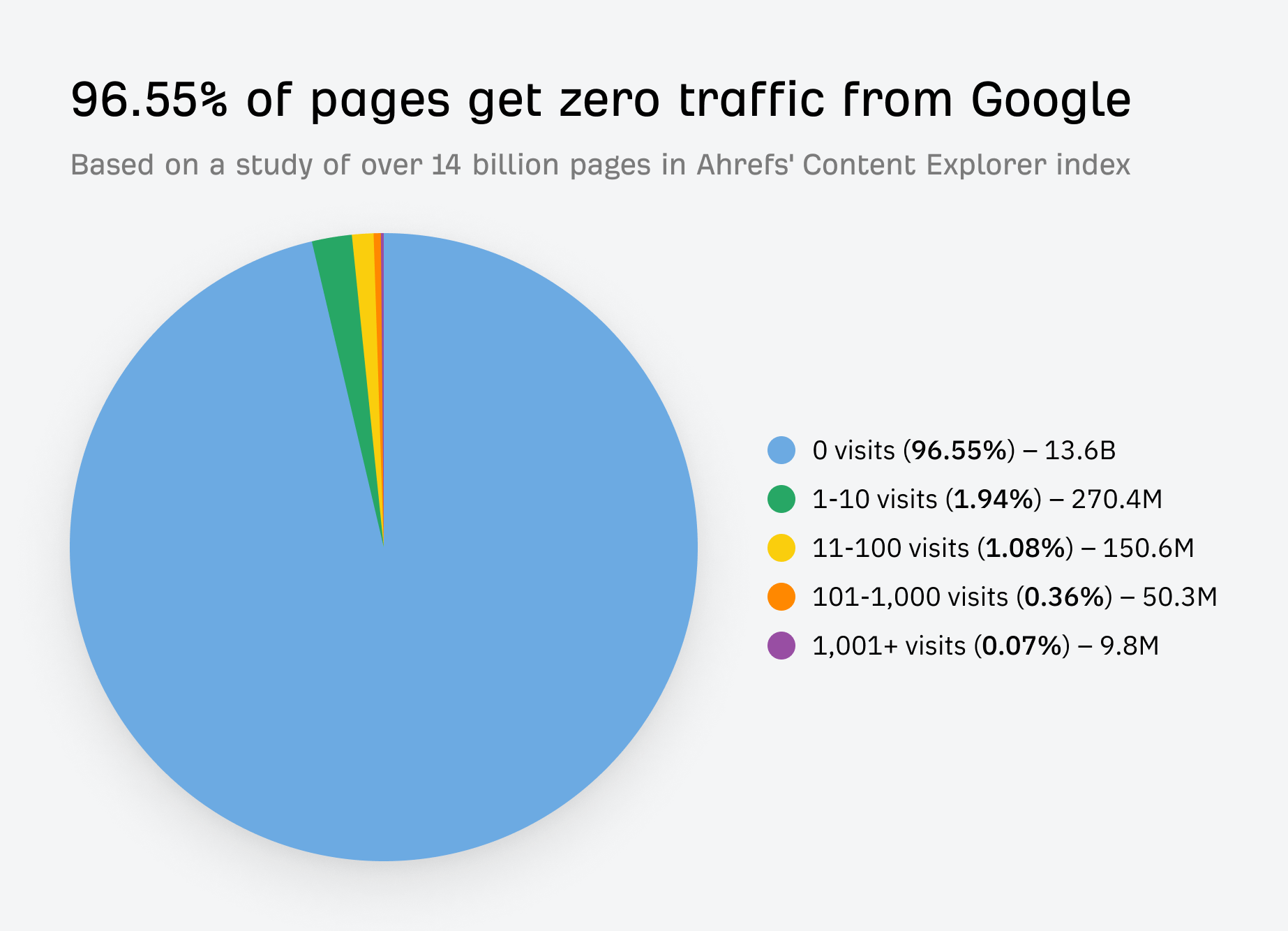In the digital age, reaching out to your community and beyond requires more than just a Sunday sermon. Welcome to the world of church blogging, where spreading your message goes outside the church building and into the vast expanse of the internet. But what good is a blog if no one can find it?
That’s where SEO, or Search Engine Optimization, comes into play. In simple terms, SEO is the magic that helps your blog appear higher up on search engine results pages (like Google or Yahoo), making it easier for people to discover your uplifting content. From sharing weekly reflections to promoting community events, a well-optimized church blog can amplify your outreach efforts and foster a deeper connection with your audience.
So, whether you’re a seasoned blogger or just dipping your toes into the digital realm, mastering the basics of SEO can truly make a divine difference in spreading your message far and wide.
Ready to learn more? Let’s jump in.
Estimated reading time: 10 minutes
What is SEO?

We’re currently in the information age. Everybody everywhere is getting barraged with information all the time. Ads, posts, videos, podcasts, blogs, and more. If you’re a content creator, getting noticed online is like finding your voice in a bustling crowd.
According to Ahrefs, 96.55% of pages get zero traffic on Google.

That is a lot of blogs, pages, and content getting skipped over. We don’t want that to be you.
That’s where SEO, or Search Engine Optimization, steps in. It’s the secret sauce that helps your church website stand out in the vast sea of the internet. Let’s break down what SEO is and how it can make a difference for your church blogging.
Search Engine Optimization
SEO is like a map that guides search engines, such as Google or Bing, to your church website. When someone searches for something online, like “inspiring sermons” or “community events near me,” search engines use complex algorithms to decide which websites to show in the search results.
SEO is all about optimizing your website to make it more attractive to these algorithms, so your church appears higher up in the search results.
How Does SEO Work for Churches?
Imagine you’re planning a community event at your church, like a charity drive or a neighborhood cleanup. You want as many people as possible to know about it, right? Well, SEO works the same way. By using the right keywords and phrases on your church website, you can tell search engines what your content is all about.
For example, if your church hosts a weekly food pantry, using keywords like “food assistance” or “local charity” can help your website show up when people search for those terms.
But here’s the thing: church SEO isn’t just about keywords. It’s also about making your website easy to navigate and understand. That means organizing your content in a way that makes sense, using clear headings and subheadings, and making sure your website loads quickly and works well on both computers and mobile devices.
When search engines see that your website is user-friendly, they’re more likely to recommend it to people searching for relevant information.
Of course, that’s just for your church website. You would do the exact same thing for church blog articles you want to appear higher on search engines. We would suggest using SEO strategies on all kinds of internet content you create. That could be your website, your blogs, your sermons, and more!
Local SEO and Directories
When it comes to church SEO, local matters. Many people search for churches or religious organizations in their area, so it’s essential to optimize your website for local searches. One way to do this is by listing your church on local directories, such as Google My Business, Yelp, or Google Maps. These directories help people find businesses and organizations near them, including churches.
When you list your church on these directories, make sure to include accurate and up-to-date information, such as your address, phone number, and website URL. This not only helps people find your church online but also improves your chances of showing up in local search results.
Additionally, encourage your congregation to leave reviews and ratings on these directories. Positive reviews can boost your church’s credibility and visibility online.
So What?
SEO is a powerful tool for churches looking to expand their online reach and connect with more people in their community. By understanding how SEO works and implementing best practices on your church website, you can improve your chances of appearing in search results and reaching those who need your message the most.
So, embrace the power of SEO and watch your church’s online presence soar!
6 Church SEO Tactics

Now that we’ve covered everything you need to know about SEO, how can we use it for the highest potential? In this section, we’re going to go over our top 6 church SEO tactics. These are going to be aimed at church blogs specifically, but many of the strategies can be used for more than just your blogs.
Ready to dive deep? Let’s go.
1. Keyword Research
Keyword research is like finding the right key to unlock the door to your church’s SEO success. It’s about discovering the words and phrases people type into Google search results when looking for content like yours. By using tools like Google Keyword Planner, you can find out which keywords are popular among your audience.
Choose keywords that are relevant to your church’s message, events, and activities. For example, if your church hosts a weekly food pantry, keywords like “community food assistance” or “local charity events” could be beneficial. Incorporate these keywords naturally into your website content and blog posts to improve your church’s visibility in Google search results.
One of the reasons you might have found this podcast is due to keyword research! By making sure this article included as many relevant keywords that people may use to search for this topic, we are able to get this up near the top of search engines!
With the right keywords, you can help more people find and connect with your uplifting message online.
2. Optimized Titles and Headings

Optimized titles and headings are like bright signposts guiding visitors to your local church’s blog post oasis. They should be catchy, clear, and include keywords relevant to your content.
Think of them as the headlines that catch people’s attention in a bustling crowd. For instance, if your blog post is about upcoming community events at your church, a title like “Join Us for Exciting Community Gatherings at [Your Church Name]” could attract attention.
Likewise, headings within the blog post should be informative and engaging, providing readers with a roadmap of what to expect. By optimizing titles and headings with the right keywords, you can make it easier for people to find and engage with your local church’s blog content, ultimately strengthening your online presence and connection with the community.
3. Internal Linking
Internal linking is about connecting the dots within your church websites universe. It’s about linking one page to another within your site, creating a network of pathways for visitors to explore. Just like how a map helps you navigate a new city, internal links guide visitors to different areas of your website.
For instance, if you’re writing a blog post about upcoming events, you could include links to relevant pages such as your church’s calendar or registration page. This not only helps visitors find what they’re looking for but also improves navigation and encourages them to spend more time on your site.
We’ve done the very same here! You may have already noticed a few hyperlinks in certain sentences that point you to other relevant articles. That’s not by accident, it is a proven SEO strategy! By strategically placing internal links to relevant content, you can enhance the user experience and boost engagement on your church website.
4. Image Optimization

Image optimization is like giving your church website’s pictures a clear path on the internet. It’s about making sure your images are easy for both visitors and search engines like Google to understand.
Start by choosing high-quality images that showcase your church’s events or message. Then, give each image a descriptive filename, such as “church-events.jpg,” and add alt text, which briefly describes the image’s content. Alt text helps visually impaired users understand your images and provides extra information for search engines.
Additionally, if your images include locations, mention them in the alt text, like “church events at [Your Church Name] on Google Map.” This can help improve your website’s visibility in local searches.
When you optimize your images with descriptive filenames and alt text, you create a smoother journey for your church’s online presence on the digital map.
5. Social Media Promotion
Social media promotion is spreading the word about your church’s message and events. It involves using platforms like Facebook, Twitter, and Instagram to connect with your community and beyond.
Start by sharing engaging content that resonates with your audience, such as photos, videos, and event announcements. Encourage your congregation to like, share, and comment on your posts to increase visibility. Engage with your followers by responding to comments and messages promptly. Additionally, consider using targeted advertising to reach specific demographics or promote upcoming events.
By leveraging the power of social media, you can expand your church’s reach, foster community engagement, and share your uplifting message with a wider audience.
6. Monitor and Analyze
Monitoring and analyzing your church website’s performance is like checking the pulse of your online presence. It’s about using tools like Google Search Console and Google Analytics to understand how people find and interact with your site.
With Google Search Console, you can track your website’s visibility in search results, identify any technical issues, and see which keywords are driving traffic. Google Analytics provides insights into your website’s traffic sources, user behavior, and conversion rates. By regularly monitoring these metrics, you can identify what’s working well and where there’s room for improvement.
For example, if you notice that certain blog posts are driving a lot of traffic, you can create more content on similar topics. By staying informed about your website’s performance, you can make data-driven decisions to optimize your church’s online presence and better serve your community.
Church Blogging SEO

In today’s digital world, having a strong online presence is essential for churches to connect with their communities and spread their message of hope and love. By implementing effective SEO strategies, such as keyword research, optimized titles and headings, and social media promotion, churches can reach a wider audience and make a positive impact online.
Remember to regularly monitor and analyze your website’s performance using tools like Google Search Console and Google Analytics to ensure your efforts are paying off. With dedication and attention to detail, your church can enhance its online visibility, engage with more people, and continue to inspire and uplift those who need it most.
So, embrace the power of SEO, and let your church’s light shine brightly in the digital world. We pray your church blogging efforts find success. God bless!
More Resources on SEO






Comments 1
I am beginning to be interviewed by a few churches to be a part-time pastor. I will need to learn to preach without notes, just following the Scriptures line by line verse by verse. I usually write out a full word for manuscript to completely stay on track. I look at a computer screen, and read, or try to scan my next sentence. I know I must stop this and improve. I also like to teach character development, communication skills, ethics, Vocational planning and guidance. (I was trained as a school counselor.) So helping kids and young adults is a great drive for me. I am a retired 72 year old Special Education Teacher, nurse, counselor, and a Clinical hospital Chaplain. I have alot to offer, but need to communicate it using SEO data organization. I need help.